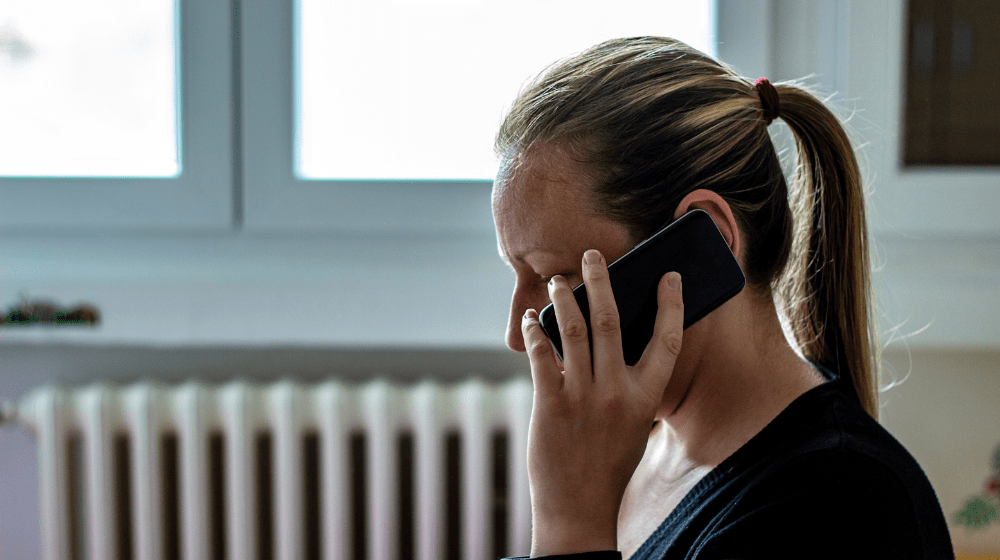BRATISLAVA, Slovakia – The road to recovery began with a devastating discovery. A woman learned that her 16-year-old niece was being abused by her boyfriend. The girl had hidden her trauma from sight, but the physical attacks had become increasingly brutal. In one incident, the boyfriend burned the girl with a hot object, leaving behind a painful cross-shaped scar on her body. The psychological wounds were even deeper. The aunt said her niece was almost unrecognizable as the abuse crushed her self-confidence and hopes for the future.
Despite the severity of the violence, the aunt was unsure what to do next. She and her family were refugees from Ukraine who had escaped to Slovakia after Russia’s full-scale invasion. Like many recent arrivals, the young girl and her aunt could not speak the local language and did not know who to turn to for support.
There are almost 130,000 Ukrainian refugees recorded in Slovakia – the majority of whom are women and children – according to the latest figures from UNHCR. Those needing help with cases of gender-based violence (GBV) have sometimes struggled with the language barrier as Slovakian authorities do not always have Ukrainian or Russian translators available. There have also been reports of women facing discrimination for their refugee or temporary protection status, which has led to survivors feeling even more helpless and isolated.
In the aunt’s desperate search for assistance, she came across the UA Helpline operated by the League for Mental Health, a well-established NGO in Slovakia, with the support of UNFPA. The hotline service provides a team of professionally-trained Ukrainian-speaking counsellors ready to listen and guide people through their toughest problems.
Answering this particular call was Silviia Herts, a psychologist originally from the town of Mukachevo in western Ukraine. She had worked at an orphanage there for over a decade, handling cases of child abandonment and family resettlement. “My heart has always sought to help the most vulnerable categories of people, giving them warmth, support and hope for a better future,” she said.
Ms. Herts also understands on a deeply personal level the impact of intimate partner violence. She left her home country in 2014 when Russia first began its attacks. She also left behind an abusive relationship with her husband, taking her then 11-year-old son to start a new life abroad. At that time, neighbouring countries had not yet developed special programmes for Ukrainian refugees and Ms. Herts faced many challenges after arriving in Slovakia. “Without knowing the language, I could not find employment in my specialty, so I had to work various jobs like looking after other families’ children or cleaning in order to cover my basic needs, rent an apartment and support my son in Slovakia,” she explained. “These years in a foreign country were full of trials, but they gave me strength and experience.”
This also became her motivation for getting involved in the UA Helpline when other Ukrainian refugees began fleeing to Slovakia in greater numbers in 2022. “I had a great desire to be useful,” said Ms. Herts. “At first, I joined as a volunteer because I speak both the Ukrainian and Slovak languages and I went through the integration process, too.”
Many of the calls she initially received at the Helpline were related to the difficulties of adapting to a foreign culture and dealing with the psychological effects of war. But as time has passed, the calls have grown more troubling. About a quarter of all the calls received by the UA Helpline in 2024 were about relationships – and the majority of them involved domestic violence and abuse.
The case of the 16-year-old girl stood out as one of the most extreme Ms. Herts has had to manage. The UA Helpline team started by supporting the aunt, who was in a state of shock, and helped her to figure out how to proceed. Then as the two sides developed more trust, Ms. Herts was able to get in touch directly with the teenage survivor: “It was very difficult for her to talk about her experience because she was afraid of further revenge from the boy.”
Step by step, they worked to rebuild the girl’s sense of security. Through more conversations, they helped her to understand that she was not to blame for the abuse and that she had the right to be safe and protected. They referred the family to further resources like legal, social and healthcare support services. In the end, the girl decided to file an official report with the police and her abuser is now being held under investigation.
“This story shows how important it is for survivors to have people who are ready to act, and how support can change someone's life,” Ms. Herts said. “Even in the most difficult moment, people can find strength in themselves if there is someone nearby who will listen and support them.”
The UA Helpline is now operated only by Ms. Herts and one other colleague. It is demanding and draining, but both find great pride and purpose in their work. Between the two of them, they make sure that the Helpline is available from 9am to 9pm, seven days a week, to answer the call of anyone in need.


